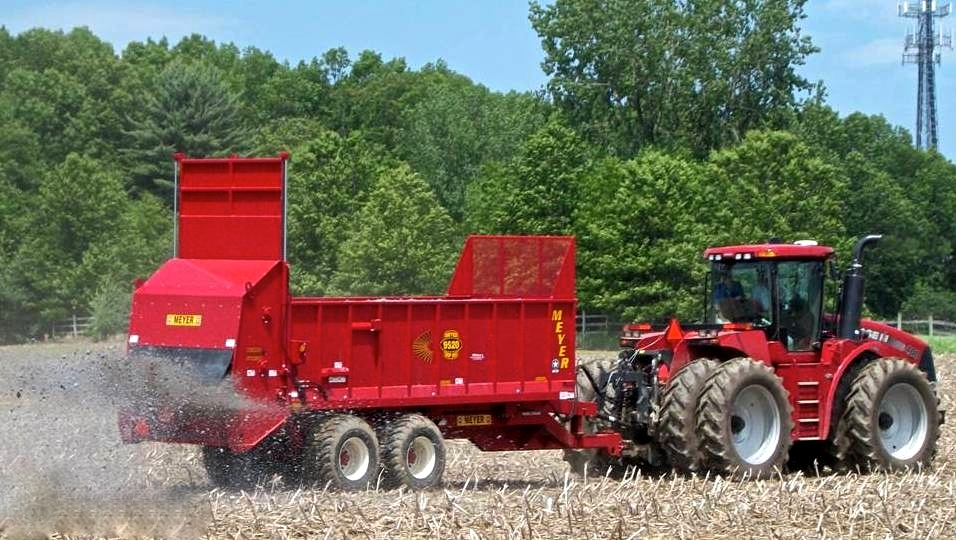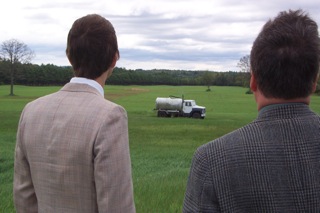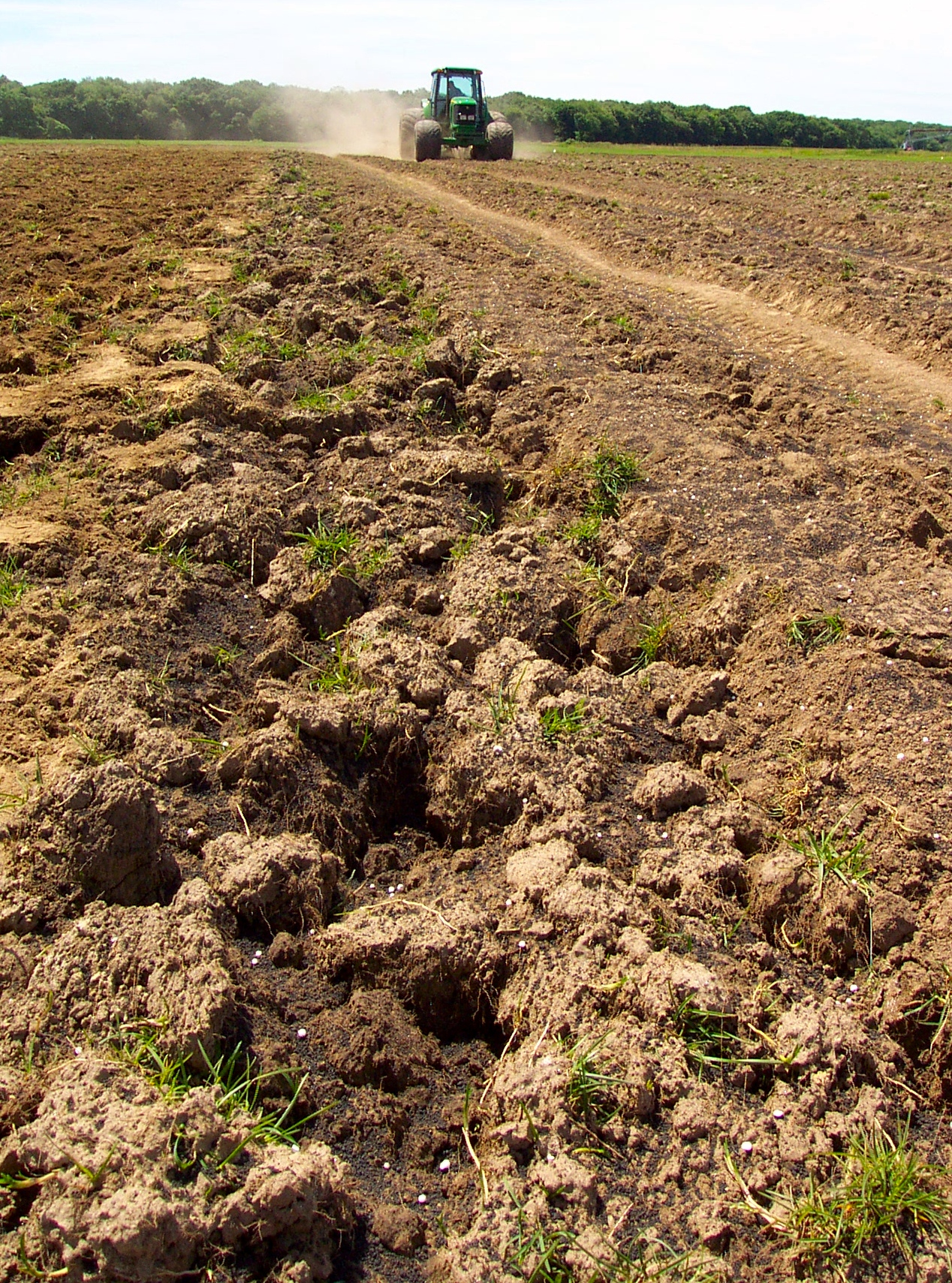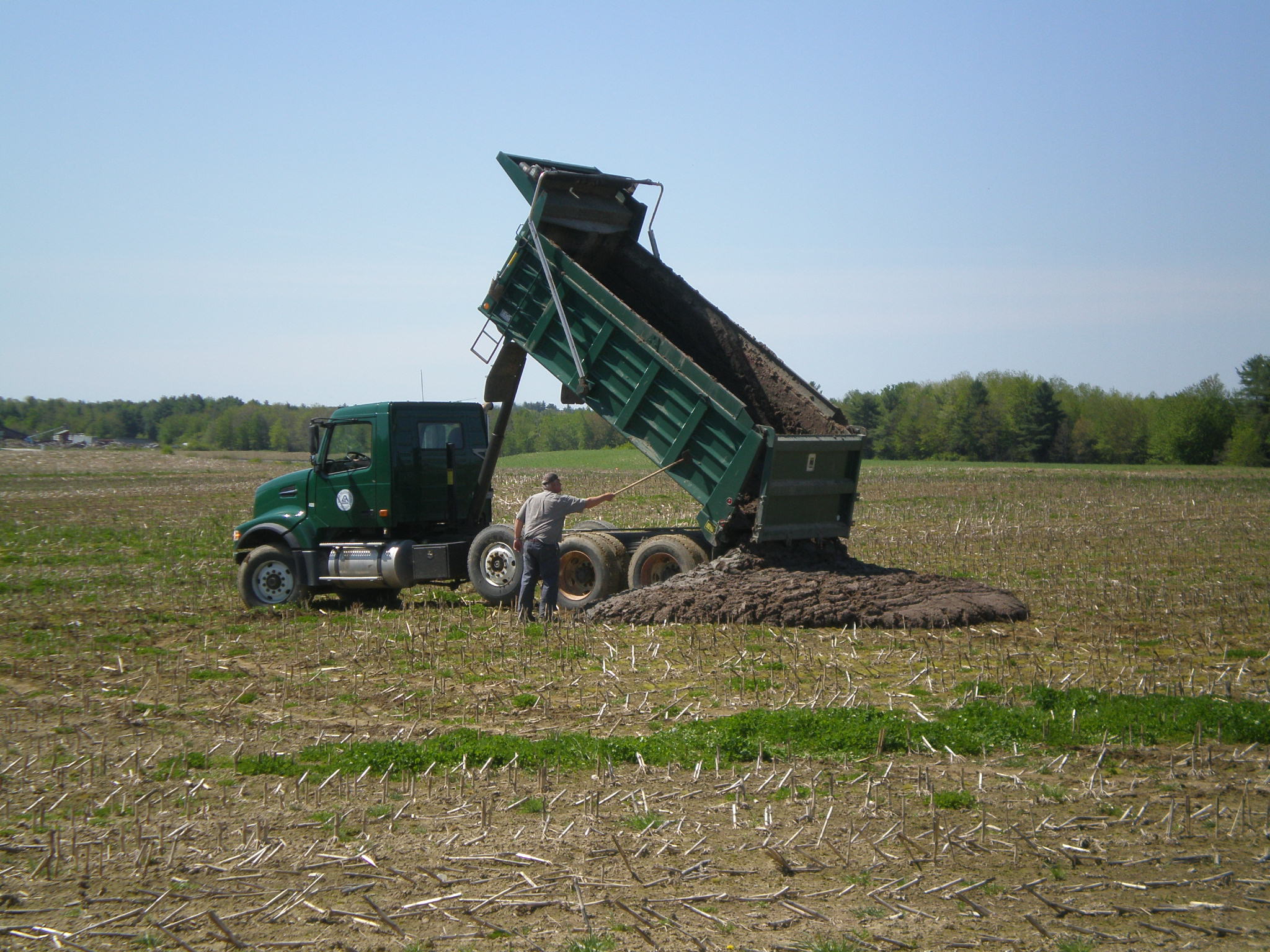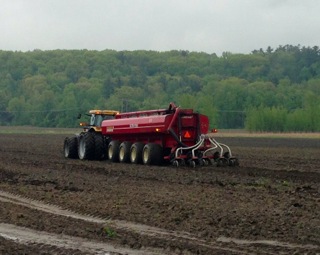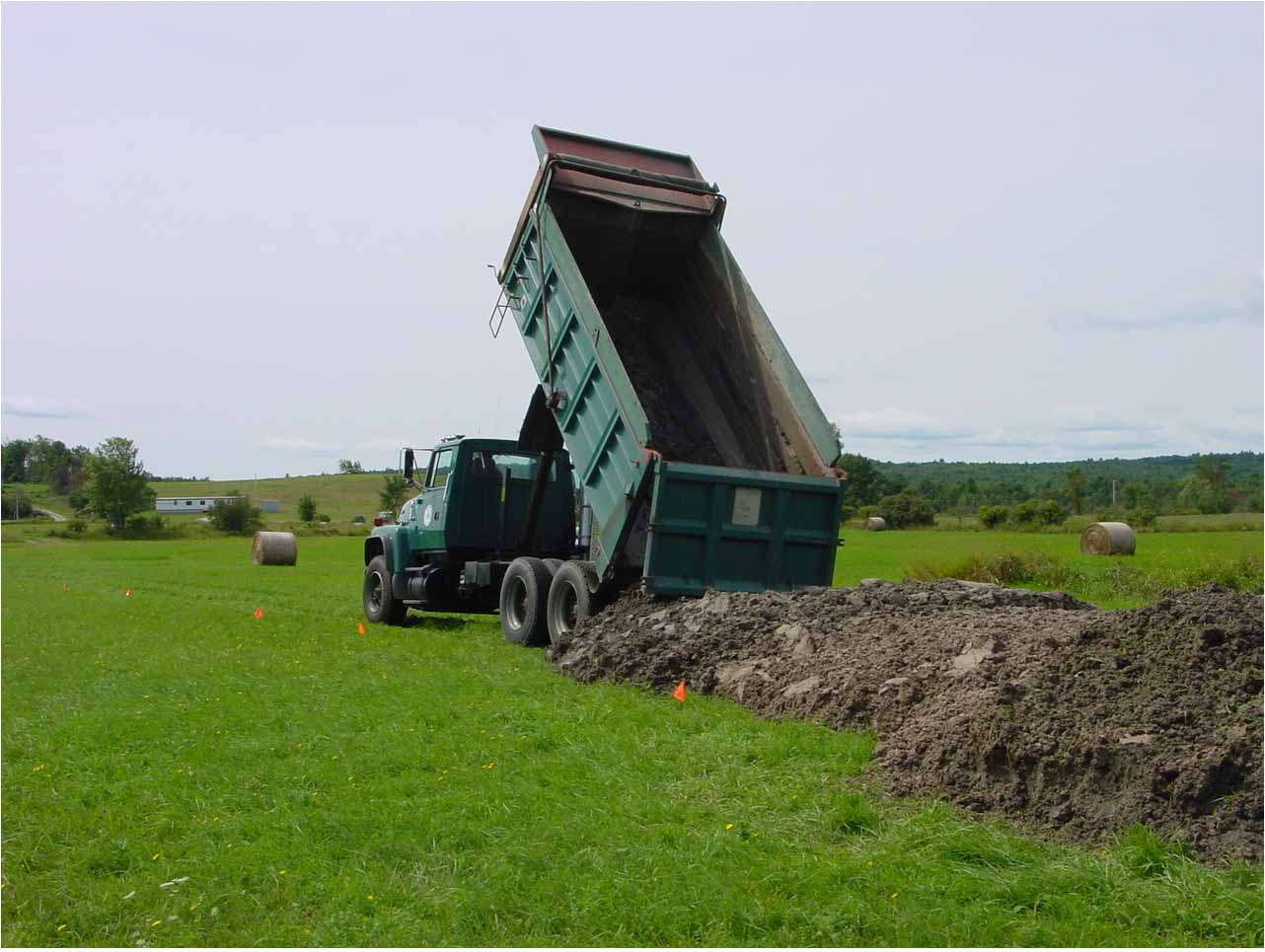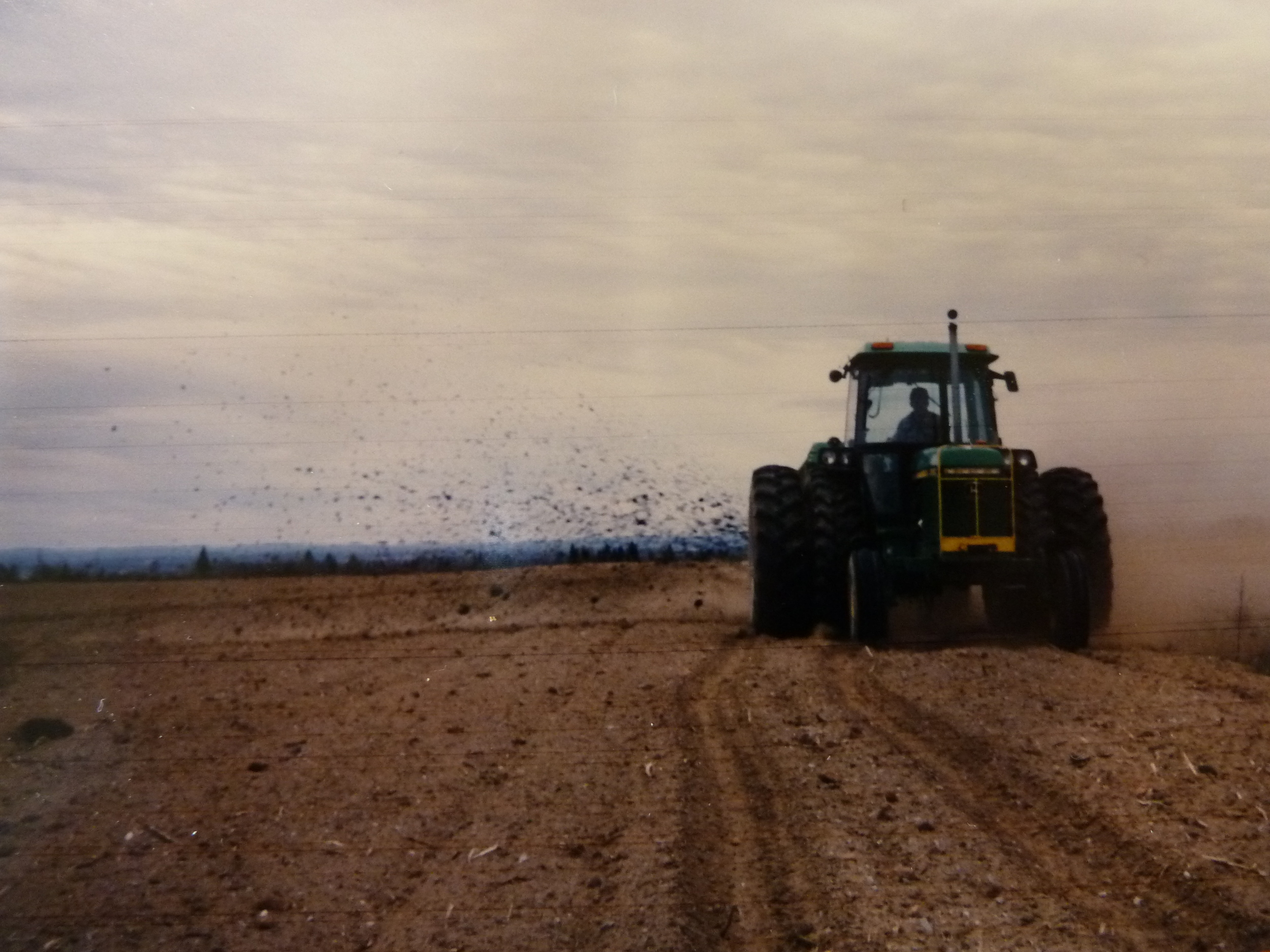Used in bulk on farms, just like animal manures...
Most Class B biosolids are used on farms, on sites with little public contact. Examples of Class B biosolids used for agriculture are from water resource recovery facilities (WRRFs) at Essex Junction VT, Nashua NH, Franklin NH, and Lewiston-Auburn ME.
In New England and eastern Canada, Class B biosolids are commonly applied with typical manure-spreading or -injecting equipment to help fertilize fields growing feed crops for dairy animals, especially corn and grass hay. Farmers rely on biosolids as one more source of organic matter and critical nutrients, especially nitrogen, phosphorus, and micronutrients (copper, zinc, iron, calcium, magnesium, etc.)
Some Class A biosolids are managed in the same ways as Class B biosolids: in bulk, applied with manure-spreading equipment, fertilizer spreaders, or liquid injectors. Generally, site permits are not required for Class A biosolids, because pathogens are minimal. Examples of Class A biosolids managed on farms in bulk are from WRRFs in Halifax NS, Concord NH, and Guelph ON.
All biosolids should be applied at the agronomic rate and in accordance with best management practices (BMPs), ensuring the optimum application of nutrients for the crop to be grown while protecting ground and surface waters.
Bulk Biosolids Sources:
- New England & NY:
Agresource
Casella Organics
Harvest Power
quasar energy group
Resource Management Inc.
WeCare Organics
- Atlantic Canada:
N-Viro Soil
Transaqua
- Ontario: Lystek
See:
- Biosolids - A low-cost fertilizer option (American Agriculturist, March 2006)
- Land Application of Class B Biosolids at a NH Dairy Farm (below)

